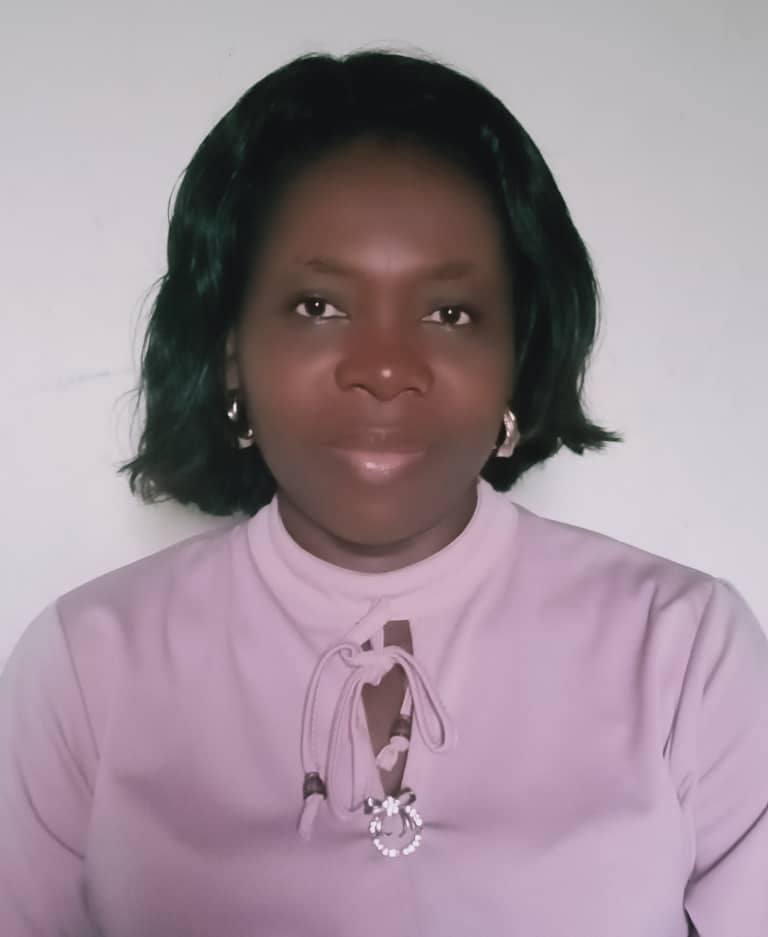HLFF Spotlight: 9th HLF
Lena Sophie Schwenker
Responsible AI – Laeticia Onyejegbu
The Heidelberg Laureate Forum has a single purpose: To provide some of the brightest minds in mathematics and computer science with the space and time to make connections and find inspiration. The HLFF Spotlight series shines a light on some of the brilliant young researchers attending the event, their background and research as well as their expectations for the HLF.
Laeticia Onyejegbu studied physics and computer science and earned her PhD in computer science from the University of Port Harcourt, Nigeria. She is now a professor for Computer Science, Artificial Intelligence (AI) and Machine Learning at the University of Port Harcourt and actively engages in projects promoting a responsible use of AI, especially on the African continent. In the interview, she explains how she wants to prevent food scarcity resulting from climate change by utilizing the Internet of Things (IoT) and AI.
Laeticia Onyejegbu is attending the 9th HLF in September 2022. Image credits: Laeticia Onyejegbu
What do you like most about your job as a professor?
I like solving problems, training and mentoring students or researchers. Technology such as AI offers great possibilities and potential to solve big societal problems and I am excited to contribute to these solutions. In addition to my research, I am actively involved in associations that support the use of science and technology, especially responsible use of AI. For example, I represent Nigeria in the Responsible AI Network Africa (RAIN-Africa). Moreover, universities play a critical role in shaping the landscape of AI ethics in Africa.AI holds great potential for the African continent, but also carries along risks and harms that must be considered to achieve a responsible and sustainable use of AI for development. Ethics is the foundation of any innovation. For this reason, I am promoting the integration of ethics into the curricula of AI programs. Furthermore, I want to contribute to the development of my community by encouraging females to study STEM.
How are you supporting young girls’ interest in STEM?
I am an active member of the OWSD University of Port Harcourt chapter, where I am involved in mentoring young girls as well as organizing workshops and quiz competitions. In 2021, we organized a robotic boot and coding camp for secondary school girls. As a workshop facilitator, I taught the girls how to code.

Laeticia Onyejegbu (in red) as mentor at the robotic boot and coding camp for young girls she organized as member of the OWSD University of Port Harcourt chapter. Image credits: Laeticia Onyejegbu
You mentioned the Responsible AI Network Africa (RAIN-Africa). What is RAIN-Africa?
The aim of the network is to connect scholars working on the responsible development and use of AI in Africa. This brings together emerging researchers, to discuss and build joint projects on the ethical and social challenges arising at the interface of technology and human values, specifically related to sustainable development. Through a series of workshops, the network provides a platform to promote cross regional and interdisciplinary research collaboration. RAIN-Africa was founded through a partnership between the Faculty of Electrical and Computer Engineering at the Kwame Nkrumah University of Science and Technology (KNUST) in Ghana and the Institute for Ethics in Artificial Intelligence (IEAI) at the Technical University of Munich (TUM) in Germany.
Which major societal problems are you targeting with your research?
In one of my projects, I am tackling the issue of dwindling crop yields. This is induced by drops in soil fertility, changing weather conditions and pest infestations and as a consequence leads to food scarcity. Together with my research team, I am developing a predictive model for cassava and maize crop yields to improve national food production. Thereby, we want to contribute to global food security and help to prevent food scarcity. This will support the local economy and improve sustainable agricultural practices in Nigeria and the African continent. By combining IoT and AI, I hope to see farmers grow their plants to their full potential, improve their crop yields and enjoy abundant harvests.
Another project addresses the issue arising from global climate change. As climate change is a huge challenge for human and animal survival on earth, it is also affecting livestock production. Feed intake, temperature, humidity, diseases and other environmental factors affect livestock production. My research team and I are using IoT and AI to monitor all these factors and aid farmers to make the right decisions. We are developing a predictive AI model to take into account measurements from an IoT system monitoring various parameters in the farm. This will enable real time data acquisition and sharing with the cloud. With our system, we want to provide a climate smart livestock app. It will allow the farmers to visualize the activities and parameters in poultry farmhouses, so they can react properly and on time, improving growth performance and enabling the large production of livestock.
What do you expect from the 9th HLF and which laureates are you looking forward to meeting the most?
Participating in the 9th HLF 2022 will enable me to interact with the laureates, especially in my research area, meet other experts in AI and computing, share research ideas, collaborate, and network with like minds. I am looking forward to meeting Yoshua Bengio and Geoffrey E. Hinton, who won the ACM A.M. Turing Award in 2018 for their conceptual and engineering breakthroughs that have made deep neural networks a critical component of computing.
More inspirational stories are to come in the HLFF Spotlight series, so stay tuned.
The post HLFF Spotlight: 9th HLF originally appeared on the HLFF SciLogs blog.
